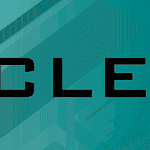So there’s this new thing out there called Pinterest which is becoming extremely popular. Pinterest is essentially a web-based pinboard — users can post images to a page that other people can view. The images can be collected from all over the web, and when an image is “pinned” in Pinterest it also links to the original site.
It’s kind of similar in some ways to Tumblr, except that it’s not a closed system — you can go to a website that has a photo or graphic you like and “pin” it in your account so that someone viewing your pins can see it, then click on it and access that site. Re-sharing, but theoretically with value to the original creator of the content.
It’s a neat concept. I can see why people like it.
But here’s the thing…
Pinterest has a page devoted to recommended etiquette where they strongly suggest that people using it focus on pinning other peoples work, not their own. Relevant quote here:
Avoid Self Promotion
Pinterest is designed to curate and share things you love. If there is a photo or project you’re proud of, pin away! However, try not to use Pinterest purely as a tool for self-promotion.
So to be a good Pinterest citizen you shouldn’t focus on promoting your own work, you should be discovering and sharing the work of others. That’s cool — they’re promoting discovery over self-promotion.
Except that their terms of service sort of says exactly the opposite thing.
I link you now to a blog post created by a Kirsten Kowalski, a Pinterest user who is also a lawyer. In her post, Why I Tearfully Deleted My Pinterest Inspiration Boards, she discusses exactly how much liability Pinterest is foisting on its userbase.
The entire article is worth reading, but I want to focus on the meat of it here. First, Ms. Kowalski references two portions of the Pinterest Terms of Service.
1 2This part:
Indemnity
You agree to defend, indemnify, and hold Cold Brew Labs, its officers, directors, employees and agents, harmless from and against any claims, liabilities, damages, losses, and expenses, including, without limitation, reasonable legal and accounting fees, arising out of or in any way connected with (i) your access to or use of the Site, Application, Services or Site Content, (ii) your Member Content, or (iii) your violation of these Terms.
Followed by this part:
Limitation of Liability
YOU ACKNOWLEDGE AND AGREE THAT, TO THE MAXIMUM EXTENT PERMITTED BY LAW, THE ENTIRE RISK ARISING OUT OF YOUR ACCESS TO AND USE OF THE SITE, APPLICATION, SERVICES AND SITE CONTENT REMAINS WITH YOU. NEITHER COLD BREW LABS NOR ANY OTHER PARTY INVOLVED IN CREATING, PRODUCING, OR DELIVERING THE SITE, APPLICATION, SERVICES OR CONTENT WILL BE LIABLE FOR ANY INCIDENTAL, SPECIAL, EXEMPLARY OR CONSEQUENTIAL DAMAGES, INCLUDING LOST PROFITS, LOSS OF DATA OR LOSS OF GOODWILL, SERVICE INTERRUPTION, COMPUTER DAMAGE OR SYSTEM FAILURE OR THE COST OF SUBSTITUTE PRODUCTS OR SERVICES, OR FOR ANY DAMAGES FOR PERSONAL OR BODILY INJURY OR EMOTIONAL DISTRESS ARISING OUT OF OR IN CONNECTION WITH THESE TERMS OR FROM THE USE OF OR INABILITY TO USE THE SITE, APPLICATION, SERVICES, SITE CONTENT , OR FROM ANY COMMUNICATIONS, INTERACTIONS OR MEETINGS WITH OTHER USERS OF THE SITE, APPLICATION OR SERVICES OR OTHER PERSONS WITH WHOM YOU COMMUNICATE OR INTERACT AS A RESULT OF YOUR USE OF THE SITE, APPLICATION OR SERVICES, WHETHER BASED ON WARRANTY, CONTRACT, TORT (INCLUDING NEGLIGENCE), PRODUCT LIABILITY OR ANY OTHER LEGAL THEORY, AND WHETHER OR NOT COLD BREW LABS HAS BEEN INFORMED OF THE POSSIBILITY OF SUCH DAMAGE, EVEN IF A LIMITED REMEDY SET FORTH HEREIN IS FOUND TO HAVE FAILED OF ITS ESSENTIAL PURPOSE.
Ms. Kowalski offers an alarming analysis of what those parts of the TOS mean to Pinterest users. I don’t have permission to quote directly from her article, but this is my summary of her conclusions, in bullet form:
- Pinterest wants you to mostly pin the work of other people, not your own work, because they want sharing rather than self-promotion.
- Pinterest wants you to do this while you assume 100% of the legal risk in doing so, explicitly absolving Pinterest of any responsibility whatsoever.
- If Pinterest is sued for hosting something you pinned, you agree to pay the cost of any damages or fees they incur.
- After you get sued for using Pinterest the way they want you to, they then reserve the right to sue you again themselves.
- Pinterest thanks you for your enthusiasm and support.3
In short, the lawyers that work for Pinterest are long-time readers of Help Desk. Seriously. This reminds me of something, if only I could remember what.
Keep in mind that this is just one lawyer’s opinion, and she takes pains to clarify this at the end of her post. But without clarification from Pinterest it’s not an opinion that can be dismissed lightly. Those aren’t trivial consequences. Seriously, Pinterest? With terms like that, the only safe thing to do is for an artist to pin his or her own work — and you’re on record saying you don’t want people doing that.
Your lawyers are making my brain bleed, Pinterest. If you guys thought that lawsuits were so inevitable you had to hang your user base out to dry if they used your service in the way it was designed to be used, I have to wonder why you bothered in the first place.
Oh, right. Now I remember.
Footnotes
- Ms. Kowalski actually uses shorter portions of the TOS in her article than the quotes I’m using. I include more text for your convenience. Also note that this text was copied and pasted from the TOS as displayed on the Pinterest site as of 28 February 2012. Any typos you find are their fault.
- Also realize that the TOS is quite a bit longer than the text I’m referencing. If you’ve always wondered what double vision feels like you should click the link and give it a read.
- This isn’t her conclusion. It’s mine.


